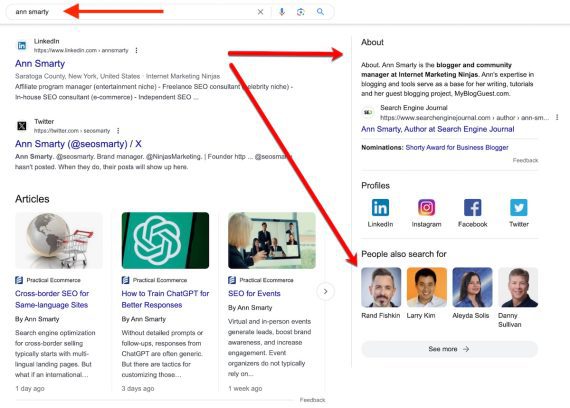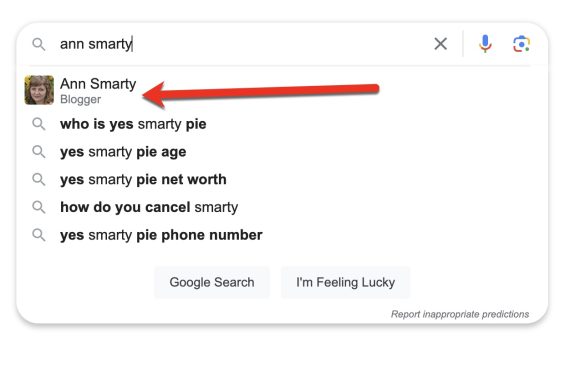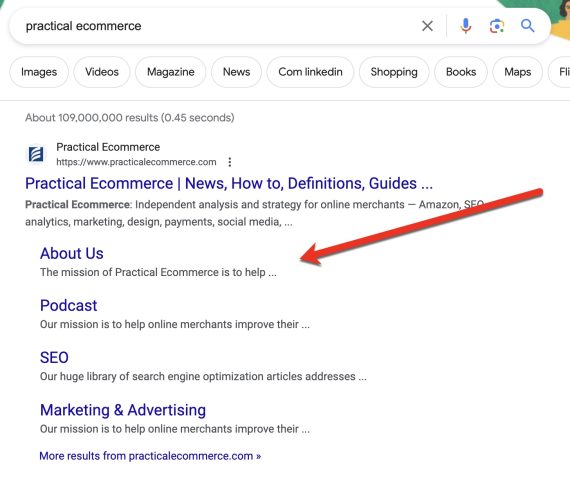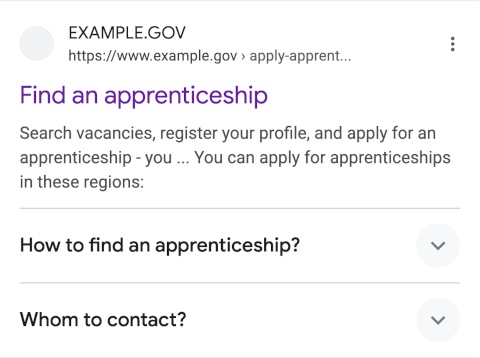SERP Signs of a Trusted Brand
[ad_1]
Google’s algorithm makes use of 1000’s of alerts to align search outcomes with a question. One is “trustworthiness,” a mix of alerts to evaluate a web page’s credibility.
Google’s Search Central portal mentions “belief” roughly 1,600 occasions. It’s a long-discussed subject.
In 2011, Google’s Matt Cutts addressed “belief” as a search sign and outlined it as “how a lot we’re prepared to imagine that this a high-quality web page.”
However there aren’t any clear metrics to measure or perceive belief, making it tough to optimize.
The excellent news is Google’s search engine outcome pages (SERPs) present clues. We can not assign belief numbers or evaluate a number of pages. But figuring out these clues helps clarify why one web page outranks one other regardless of fewer key phrases or backlinks.
Right here’s how Google’s SERPs convey trusted websites and pages.
Data Panels
The presence in search outcomes of a knowledge panel for an individual or brand query is the strongest sign that Google acknowledges the particular person or web site as a “known entity.”
Data panels are exhausting to earn. An entity — an individual, group, or location — should be a part of Google’s huge information graph to set off the panel.
The information graph is an interconnected map of entities to assist Google perceive the context behind a search question.
A model should be related with current entities to grow to be one itself. The connection is greater than hyperlinks, resembling a trusted accomplice or award winner, for instance. It takes many mentions in Wikipedia and respected publishers to grow to be a identified entity.
An individual or model search that triggers a information panel is a big sign of belief from Google and a disclosure of the associated entities.

Looking out “ann smarty” triggers a information panel, a belief sign from Google. Click on picture to enlarge.
Equally, Google’s autocomplete signifies whether or not it considers the question an entity — with or with out a information panel — and the classification or class. For instance, typing “ann smarty” in Google’s search field produces autocomplete outcomes exhibiting “Blogger” as my class.
Sitelinks
One other signal of a trusted web site is the presence of sitelinks within the outcomes of a model question, though it’s a lesser sign than a information panel.
Some websites garner one-line “mini” sitelinks.
Others generate expanded sitelinks, signaling a stronger model.
The strongest manufacturers additionally set off a site-search field.

The strongest manufacturers set off a site-search field within the sitelinks. Click on picture to enlarge.
Wealthy Snippets
Rich snippets in search outcomes stem from structured data. Wealthy snippets are usually not tough to earn, though some search optimizers speculate Google is transitioning them into an award. For instance, Google stated in its Search Central weblog that FAQ snippets now present just for “well-known, authoritative authorities and well being web sites.”
This seemingly foretells Google’s more and more stingy use of wealthy snippets. Thus preserve an in depth eye in your web site’s wealthy snippets and people of opponents.
[ad_2]
Source link





